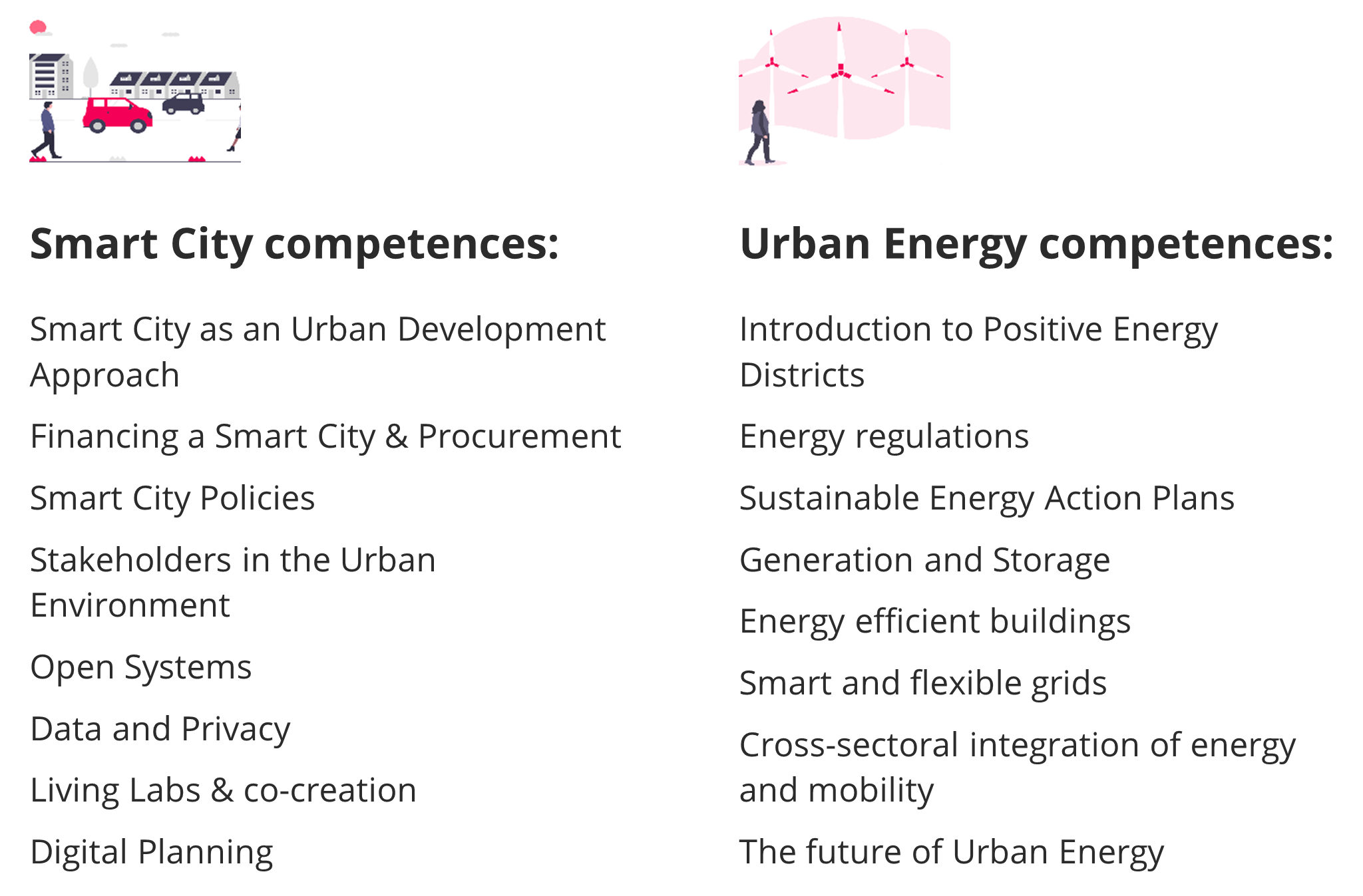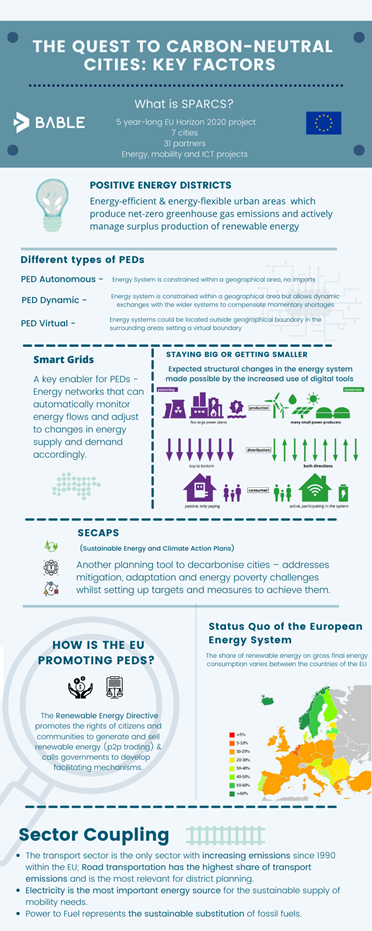SPARCS Smart City and Energy Training for cities
There are 29 years left to transform every European economy to have net-zero greenhouse gas emissions and to follow the EU’s pledge to become climate-neutral by 2050 (1). But how does a city successfully prepare itself for the challenges of the 21st century while still providing its inhabitants with a liveable, sustainable and innovation-oriented environment? In other words, how do we transition to a carbon-neutral future without leaving anyone behind and providing for everyone?
Cities have an undeniable role to play in climate adaptation and mitigation strategies since they are home to over 66% of the EU’s population, account for about 80% of energy use and generate up to 85% of Europe’s GDP (2). But in order to react appropriately to the magnitude of the challenge and transformation required to reach carbon neutrality goals, cities and their local governments need a trained, skilled workforce who can assess the current situation and successfully plan, coordinate, deploy, and evaluate small- and large-scale implementations.
In this context, innovative smart technologies offer an opportunity to consume fewer resources, provide new or improved public services and adapt to the changing reality at an accelerated pace. The transformation towards a Smart City does not consist solely of the simple application of new technologies. Rather, modern urban development should follow a holistic approach and successfully network innovative technologies, sustainable infrastructure, and digital processes. Smart Cities promise integrated solutions to be efficient, sustainable, resilient and successfully equipped for the diverse challenges of the future. Nevertheless, this promise can only become a reality if local leaders and project managers have the right tools and expertise to direct the use of innovative technologies towards sustainability, decarbonisation, and equality goals.
It is exactly this contextual understanding that provided the impetus for the professional training mission implemented within the SPARCS project. Local government representatives from the seven project partner cities participated in a training organised and taught by BABLE with the collaboration of experts from Fraunhofer ISE, FOKUS, and VTT. The training lasted 6 months, with classes every week focused on different topics and three virtual city visits to former Lighthouse cities from past projects: Cologne (GrowSmarter), Stockholm (GrowSmarter), and Vienna (SmarterTogether)

Figure 1 – List of modules
Based on individual experiences from pilot cities around the globe, cities received exciting suggestions and helpful examples as well as a comprehensive overview of current developments and possibilities for efficient planning and implementation of digital and sustainable city models. The training leveraged on the expertise of our trainers, coupled with active participation and discussions to exchange ideas with other participants with similar challenges. The course’s aim was to support the cities in the development and implementation of Smart City and Energy strategies and projects, and to give them an insight into innovative technical answers, incentive systems and financing models as well as other design options.
Some of the topics we discussed included:


